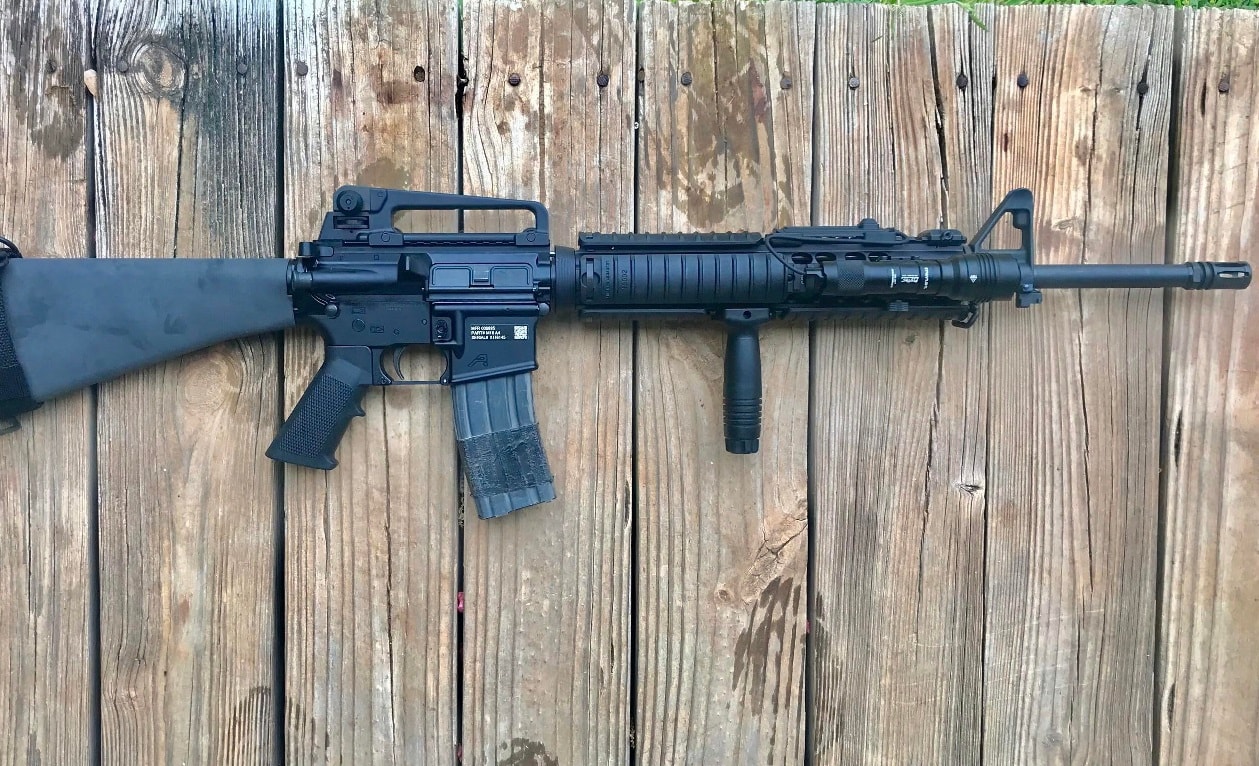The case of the missing M16 rifles: Numerous “reality shows” have been built around the theme of individuals who buy storage lockers and other artifacts and find unimaginable treasure in a weekly twist find unimaginable treasure. Most people who seek to bid for the contents of an unopened storage locker at auction will be treated to the responsibility of emptying out someone’s abandoned junk and getting to pay for the privilege of doing so!
Such was certainly not the case for a Houston-area couple earlier this month, as they found something that was truly unimaginable – yet, it wasn’t exactly treasure. The couple, who hasn’t been named, reportedly runs a “side hustle” that involves buying up military surplus lots, dividing the contents, and selling them on eBay or other online sites. Recently, they purchased 108 storage cases sold by a government surplus website.
Over the weekend, a friend helped the couple stack and store the cases, and as a thank you/payment, they gave one of the cases to the friend. Realizing it wasn’t empty, he opened the case to find 12 military select-fire M16s – which local media in the Houston area have erroneously described as “fully-automatic.” The weapons had tags that designated the military branch, as well as the name of service members who had been previously issued the rifles.
“We just purchased these cases. We never expected anything in there,” said the husband, who did not want to be identified. “Supposedly, the sender should check every single box to make sure there’s nothing dangerous or anything.”
It remains unclear at this point which government surplus website had sold the storage boxes.
Enter the ATF
Instead of finding treasure, the couple and their friend had to endure questions from authorities after they reported what they had found. Within hours, agents from the ATF and FBI were on the scene and seized the one open box with the dozen weapons. Shortly thereafter, the ATF obtained a search warrant for the couple’s storage unit, and subsequently spent most of Monday on location, going through the boxes.
The couple has said they’re reluctant to make such a purchase of military surplus in the future.
ABC13 reported that it had observed agents opening, closing, and stacking multiple gun cases. The company that sold the surplus items halted sales and is now conducting an internal investigation (and will likely get its own visit from ATF). A representative from the company told ABC13 that it directly contracts with the Department of Defense (DoD) to sell surplus equipment, which never includes any weapons.
Though it is uncommon for the military to accidentally lose track of small arms, it, unfortunately, does happen. In this incident, however, it sounds as if the “cases” in question were rifle storage chests and likely one wasn’t emptied before it was sold as surplus. This reporter speculates that the cases may have been used to transport the rifles home from Afghanistan last year, which would explain why the seemingly empty chests are being sold off now.
Of course, thousands more rifles, and other equipment, were also left behind.
Lost Weapons
More alarming is the fact that the Department of Defense (DoD) has been known to lose track of thousands of weapons, including actual machine guns, in recent years. As reported this past summer, the U.S. Army has hidden or simply downplayed the extent to which those small arms have disappeared, while it was also reported that the Army’s pattern of secrecy and suppression to conceal the losses goes back nearly a decade.

M16. Image Credit: Creative Commons.
And for those who really don’t want to sleep well, it should be remembered that during the Cold War, the United States military lost six nuclear weapons, and it is unlikely those will ever be recovered!
A Senior Editor for 1945, Peter Suciu is a Michigan-based writer who has contributed to more than four dozen magazines, newspapers, and websites with over 3,000 published pieces over a twenty-year career in journalism. He regularly writes about military hardware, firearms history, cybersecurity, and international affairs. Peter is also a Contributing Writer for Forbes. You can follow him on Twitter: @PeterSuciu.

